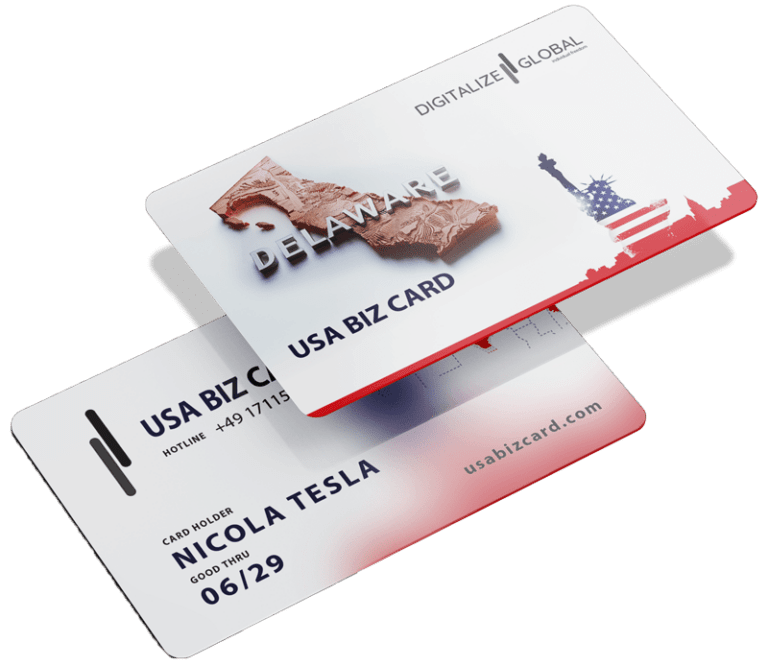How can I ensure that my US LLC is GDPR compliant?
As the owner or manager of a US Limited Liability Company (LLC) that processes personal data of EU citizens, you face the challenge of complying with the strict requirements of the General Data Protection Regulation (GDPR) (ensuring GDPR compliance). This guide provides you with a comprehensive overview of the necessary steps to ensure GDPR compliance for your US LLC.
1. understanding the basics of the GDPR
Before taking specific measures, it is important to understand the basic principles of the GDPR:
- Lawfulness, processing in good faith, transparencyAll data processing must be based on a legal basis and be transparent.
- EarmarkingData may only be collected for specified, explicit and legitimate purposes.
- Data minimizationOnly the data necessary for the purpose may be processed.
- CorrectnessPersonal data must be correct and up-to-date.
- Memory limitationData may only be stored for as long as is necessary for the purpose.
- Integrity and confidentialityAppropriate security measures must be implemented.
These principles are enshrined in Article 5 of the GDPR. You can find a detailed explanation on the official website of the EU Commission on the GDPR.
2. lawful basis for data transfers
For US LLCs, the lawful transfer of personal data from the EU to the US is a key challenge. Here are the main options:
2.1 EU-US Data Privacy Framework (DPF)
The DPF has been in force since July 10, 2023 and provides a legal basis for data transfers to the USA.
Steps to DPF certification:
- Check whether your company is subject to the investigatory and enforcement powers of the FTC or DOT.
- Create a publicly available privacy policy that reflects the DPF principles.
- Submit an application for self-certification to the U.S. Department of Commerce.
- Submit all necessary documents and evidence.
- Renew the certification annually.
Further information and the certification process can be found on the official DPF website.
2.2 Standard Contractual Clauses (SCC)
If DPF certification is not possible, you can use the standard contractual clauses approved by the EU Commission.
Important points when using SCCs:
- Use the latest versions approved by the EU Commission.
- Carry out a transfer impact assessment to check whether additional protective measures are required.
- Carefully document the process and the decisions made.
The current SCCs and further information can be found on the Website of the European Commission.
2.3 Binding Corporate Rules (BCR)
BCRs can be an option for larger groups of companies.
Steps to BCR implementation:
- Develop internal data protection guidelines that comply with GDPR requirements
- Have these approved by the relevant EU data protection authorities.
- Implement the approved policies company-wide.
Further information on BCRs can be found in the Guidelines of the European Data Protection Board.
3. technical and organizational measures
To be GDPR-compliant, you must implement appropriate technical and organizational measures:
3.1 Data security
- Implement encryption technologies for data at rest and in transit.
- Establish robust access management with the principle of least privilege.
- Carry out regular security audits and penetration tests.
The Federal Office for Information Security (BSI) offers extensive resources on IT security.
3.2 Data protection management system
- Develop policies and procedures for handling personal data.
- Train your employees regularly in data protection practices.
- Implement a procedure for reporting data breaches.
The International Organization for Standardization (ISO) provides a recognized standard for information security management systems in the form of ISO/IEC 27001.
3.3 Documentation and verifiability
- Keep a record of processing activities in accordance with Art. 30 GDPR.
- Document all data protection measures and decisions.
- Implement a system for managing consents and revocations.
You can find a template for a record of processing activities on the Website of the European Commission.
4. rights of data subjects
Ensure that your US LLC respects the rights of data subjects under GDPR:
- Right to informationImplement a system to grant data subjects access to their data.
- Right to rectificationProvide processes to correct incorrect data.
- Right to erasureDevelop procedures for secure deletion of data on request.
- Right to data portabilityEnable the export of data in a machine-readable format.
- Right of objectionRespect objections to certain processing, especially in marketing.
A detailed overview of the rights of data subjects can be found in the Guidelines of the European Data Protection Board.
5. data protection impact assessment (DPIA)
A DPIA is required for high-risk processing:
- Identify processing operations that could pose a high risk to the rights and freedoms of natural persons.
- Carry out a DPIA for these processes.
- Consult the responsible supervisory authority if there is a high residual risk.
You can find instructions on how to carry out a DPIA in the Guidelines of the Article 29 Working Party.
6. data protection officer (DPO)
Consider appointing a DPO, even if it is not a legal requirement for your US LLC. A DPO can:
- Serve as a point of contact for affected parties and supervisory authorities.
- Internal data protection processes monitor and improve it.
- Advise the company on data protection issues.
Further information on the role and tasks of a DPO can be found in the Guidelines of the European Data Protection Board.
7. regular review and adjustment
GDPR compliance is a continuous process:
- Carry out regular internal audits.
- Stay informed about changes in data protection legislation and case law.
- Adapt your measures if necessary.
The European Privacy Seal (EuroPriSe) offers an opportunity for independent certification of your data protection measures.
Conclusion
Ensuring GDPR compliance for a US LLC requires careful planning and continuous efforts. By implementing the measures described in this guide, you can significantly reduce the risks of non-compliance and increase the trust of your European customers and business partners.
Please note that the legal situation is complex and can evolve. It is advisable to regularly inform yourself about current developments and, if necessary, seek legal advice in order to address the specific requirements of your company.
For the latest developments and interpretations of the GDPR, we recommend regularly checking the official website of the European Data Protection Board to consult.













